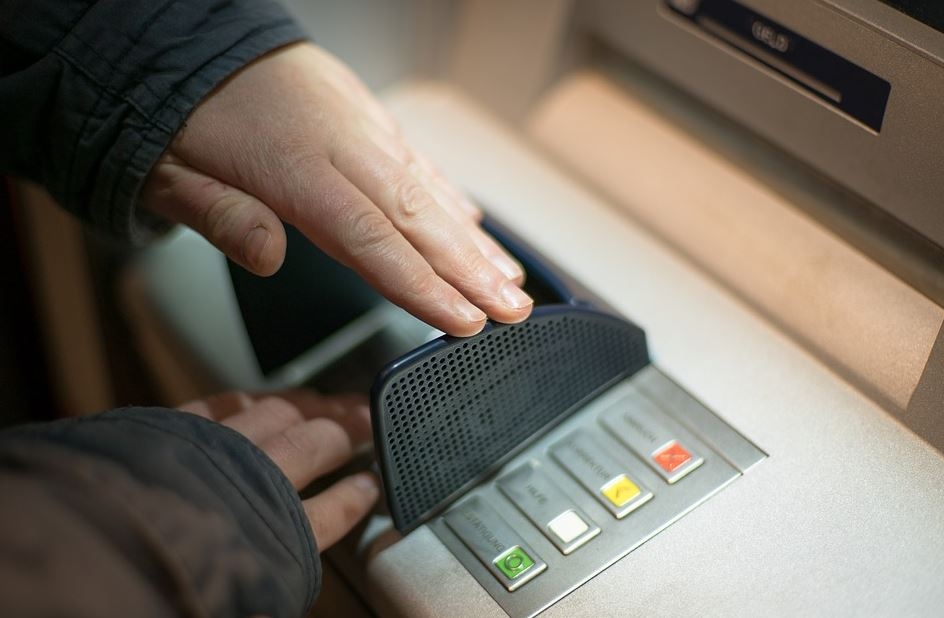These scammers ask you to send an up-front payment in order to receive a special reward like a pre-approved loan, heavily discounted holiday or a prize. Examples include:
- Reclaim scams – you’ll be entitled to a rebate or a reimbursement once you pay a fee
- Inheritance scams – you’ll inherit a huge amount of money, but will first have to pay a fee
- Lottery and prize scams – you’ll win some prize, but need to pay a fee to receive it
- Travel prize scams – you’ll receive a free or a heavily discounted holiday, but you’ll first have to purchase the “travel voucher”
- Rental scams – you’ll be able to rent an amazing property for a ridiculously low amount of money once you pay the booking fee
In all cases, the scammer will offer amazing conditions but will always ask for an up-front payment. If you decide to pay, the scammer will probably ask for more money and will keep doing so until you figure out what’s happening.
Lottery & Prize Scams
Unexpected lottery or prize scams ask for a fee in order to claim the lottery or any other prize from a competition you have never entered. The scammer will inform you about your amazing prize that could be anything from money to free electronic equipment or even a holiday. If it’s a lottery scam, you’ll probably get a name of some legitimate overseas lotteries so that the scam looks real once you do some superficial research. Regardless of the type of the scam, to claim your reward you’ll have to pay a fee, which will probably be for courier charges, bank fees, government taxes or insurance costs. The scammer will keep making up all kinds of fees to get the most money out of you. Alternatively, scammers may ask you to dial a number (starting with 190) on which they receive a premium rate and will try to keep you on the line as long as possible to receive more money. They can even ask you to call another premium rate number. In addition, scammers can ask for your personal details to have a proof of your identity so that you can receive the prize. In some cases, the scammer will even send a fake check for part of your winnings in order to trick you into believing that everything is legitimate. Once they convince you, they’ll ask for more money to pay all kinds of fees. And of course, their check will bounce and you won’t receive a thing.
Travel Prize Scams
Travel prize scams attempt to trick you into paying some fake fee to claim a “reward” like a free holiday trip. These scams usually start after you sign up to receive information about holiday trips that peak your interest. Within the same day you can expect to receive a notification by email, text of phone informing you that you have won some special voucher for a free holiday, often worth several thousand dollars. The holiday destination can be anything from exotic places like Pacific Islands, Bali and Thailand to relaxing holiday in the hot Bahamas or Florida. However, when it’s time to claim the prize you’ll be told that you first have to purchase more travel vouchers. Apart from money for additional travel vouchers, the scammers will usually ask for your credit card information and use it to steal money from your bank account.
Scratchie Scams
When you receive a notification about winning a prize from scratchie cards, chances are it’s a scam. And even though there are legitimate lottery competitions with scratchie cards, most of them are fake. The easiest way to determine whether it’s real or not is to see what the potential scammer asks from you. If you need to pay an up-front fee or give your personal information (especially bank and credit card information), then it’s definitely a scam.
Charity Scams
Unfortunately, nothing is sacred for scammers and they will even try to earn money by doing charity scams. The scammer will impersonate a genuine charity and try to take advantage of your compassion and generosity by asking for a contribution for people in need. The worst thing about these scams is that they divert genuine and much-needed donation away from people in need and create skepticism in generous people who sometimes refuse to help believing it’s a scam. Fake charity scams often try to exploit some real natural disaster like earthquake, cyclone and flood. The scammers pretend to be agents of some legitimate and usually well-known charity or even create their own fake charity name. They usually play on the emotions, claiming that children need medication, food and basic stuff to survive. Some scammers even set up a fake website, create fake profiles of people that need help and try to scam as many people as possible. With all of this being said, here at
Dealspotr, we strongly suggest doing a thorough research and figuring out whether the charity is real or not. In most cases, we would always advise you to simply ignore all call to actions, but here we simply have to make an exception as there is always a chance that it’s actually a real charity and that someone desperately needs our help. After all, sometimes our small donation can save someone else’s life, so always help when you can.

Dating Scams
Finding romance or even love online happens every single day. However, dating websites, social media, and apps are full of scammers who are prepared to play on emotional triggers and take advantage of the victim when they are vulnerable the most. Most dating scams take place through dating websites and social media, but email and even telephone may be used as a first introduction. These scams are popularly known as “catfishing” and they are so widely spread that
MTV has a TV Show Catfish dedicated to people who usually get “catfished” by a person they`ve been talking to for months or even years. In most cases, the scammer will create a fake profile on popular social media channel like Facebook or Instagram and try to lure the victims. They will surely use a picture of a beautiful man/woman and a fake name and information. Once you begin chatting, they will soon express emotions and will try to convince you to take the communication away from the website to a more personal way of communication – your phone. They will do their best to get to know you and gain your trust and will often shower you with loving words and make up some personal stories that they didn`t tell anyone. Most scammers will claim that their camera isn`t working so they’ll talk with you on the phone and send messages. Once they gain your trust, scammers will subtly ask for money or your credit card information. They will often make up stories of some kind of a personal emergency like an expensive operation that they can’t afford. Some scammers ask for money in order to purchase a ticket and visit the victim. We don’t exactly know what the scammer will try to do, but nevertheless, you now know the pattern and can easily avoid being scammed or getting your heart broken.
Overpayment Scams
This is a really sophisticated type of scam that has tricked even the brightest people. Overpayment scams are everywhere – on
eBay,
Amazon or pretty much every portal dedicated to buying and selling. The scammer will contact the seller and make a generous offer and then send a check as payment – the check will be for a significantly greater amount than previously agreed. Before the check gets cleared by the bank, the scammer will contact the seller and make some fake excuse for the overpayment and ask for the refund of the excess amount. Of course, there is no such thing as the excess amount because the check is fake and it will bounce. In case the seller decides to refund the excess amount, he/she will lose money. Apart from them, any item that has been sent won’t be retrieved as well.
Remote Access Scams
Remote access scams quickly became of one the most popular online frauds and will definitely pose a threat in 2017 as well. The scammers pretend to work for a large computer telecommunication company and claim that you have internet or a computer problem (like a virus or an error) and need to buy software to fix the problem. Ironically, they may even claim that your computer has been hacked and request a remote access to your computer to fix the problem. In addition, most scammers will also ask for your credit card information. They will usually seem very knowledgeable and professional and may become abusive if you refuse to cooperate.
False Billing Scams
In 2016, we`ve seen a rise of the false billing scams and we can expect the same in 2017 as well. These scams revolve around fake invoices for pretty much anything – domain name renewal, advertising, directory listing, office supplies, etc. The scammers take advantage of administrative assistants that have no idea whether any promotional or advertising activity has been requested. Apart from that, scammers also target everyday people who have their own website. They send fake host service invoices or invoices for indexing their website on Google. Of course, these are all fake and you definitely need to pay attention to anything suspicious. The general rule is – if you are uncertain, don’t pay!
Online Shopping Scams
When scammers pretend to be legitimate online sellers, they are doing the online shopping scam. They will use a fake ad on genuine websites or create their own fake website to lure victims and steal their money. You should pay attention to: Fake retailer websites – they look like a genuine online retail store and have sophisticated layouts and designs and even a stolen logo. The scam revolves around the method of payment – they will ask to be paid using pre-loaded money card or a wire transfer. Online auction websites – even though most auction websites are completely legitimate, there are still many scammers who lurk on these websites and try to find a victim. The scammers will claim that the winner of the auction you were bidding in has decided to pull out, so you can purchase the item. The red flag here is when they request to make a deal outside the auction website, which is something you should never do! Online classified websites – these promote the sale of service and goods, but allow negotiation on a price outside of the site. Scammers usually pose as sellers by posting fake ads for things like bikes, used cards, rental properties, pets, etc., and offer lower prices to lure potential victims. They will always ask for an up-front payment, and once they get their hands on the money they will disappear.
Betting & Sports Scams
Scammers know how to take advantage of people who are looking for an easy and quick way to earn money online. These people are an easy “prey” and often lose a lot of money trying to get rich overnight. Betting and sports scams convince people into investing in foolproof software or a system that guarantees a profit on casino and sporting events. The reality is that these scams are a form of gambling and not a legitimate investment. After all, if it worked perfectly, why would anyone share it with you for a small fee? We can divide betting & sports scams into three categories:
- Computer prediction software – scammers will try to sell you software that accurately predicts sporting results and gives you a great profit within a short time. These programs supposedly identify amazing opportunities based on large data and give you a safe bet.
- Sports investment – scammers will usually target people with funds to “invest” in a business opportunity and use financial and technical terms like “sports trading”, “sports arbitrage” and “sports wagering”. They will also have some fancy website or a brochure with diagrams of graphs proving huge returns for no effort.
- Betting syndicates – scammers will try to convince you into becoming a member of a betting syndicate where you’ll have to pay a compulsory fee and make additional deposits. In return, the scammer will promise to use the funds to place bets on behalf of the syndicate and you’ll receive a percentage of the profit.
Of course, behind all three cases are scammers that only want to steal your money.
Pyramid Schemes
Pyramid schemes have been around for more than a decade and are surprisingly still present in 2017. They are an illegal “get reach schemes” that recruit members to pay an entrance fee. They usually recruit people at home meetings, seminars, by email, social media or over the phone. The pyramid scheme will work as long as members can constantly convince new people to join and pay the entrance fee. The higher your position in the pyramid is, the more money you’ll earn. However, the number of people who are willing to join will dry up quickly and people who joined last will end up losing money. In addition, promoters of this type of scheme will try to disguise the true purpose by offering an opportunity to earn money by selling poor overpriced products that are very difficult to sell. At some point every pyramid scheme will collapse and people at the bottom of the pyramid will end up losing money.
Identity Theft Scams
Identity theft is one of the most common types of scams that will probably reach its peak in 2017. It is a type of fraud when someone else uses your identity to steal money or gain some benefit. The two most common types of identity theft are phishing and hacking. Phishing Any attempt to trick you into giving your personal information (credit card and bank account numbers, passwords, passport number, etc.) is called phishing. A scammer will contact you and pretend to work for a legitimate business (like a bank) and will ask for your personal information. There are thousands of different approaches a scammer might use, but they all lead to one thing – asking for the information they can use for fraudulent activities such as stealing your money. There are two types of phishing scams:
- Pharming – the scammer will usually send you an email that redirects you to a fake website that looks the same as the legitimate site you wanted to visit. For example, there’s a good chance you received an email that informs you about the latest activities on your PayPal account and gives you a link to log in and check it out. However, that email was sent by a scammer who created a fake website that looks like PayPal where you would enter your username and password and he/she will use it to still your money.
- Whaling and spear phishing – these scams are targeted towards business where the scammer attempts to receive confidential information in order to use it for fraudulent purposes. The scammers are usually highly knowledgeable and use information that are unique to the business that they acquired elsewhere.
Hacking
Hacking occurs when a person gains access to your private information by “breaking into” your computer, laptop, network or a mobile device. There are three common hacking methods:
- Malware – the scammer convinces you to install software that gives him access to your files and tracks down everything you do on the computer. So for example, if you go to your PayPal account and enter your login information, the scammer will know your username and password. In most cases, people aren’t even aware that they are downloading software that will cause them many problems. The scammers create fake social media channels and promote random links with an interesting video. Once you click on the link you’ll be taken to some fake website that will ask you to install software to be able to watch the video. Alternatively, scammers will use pop-ups and websites that offer free file downloads once you download certain software.
- Ransomware – if scammers manage to hack into your computer they can change your passwords, use your personal information and even restrict you from accessing your own system. Ransomware scammers will demand payment to give you back control of your computer.
- Exploitation of security weaknesses – some people have unsecured WiFi connections, weak passwords and old antivirus protection that can be easily hacked. Once the hacker manage to access the computer, it will be easy to obtain information that will be used for fraudulent activities like identity theft or stealing money.









 Here you will find all the best coupon advice, tips and how to make the most of all your coupons!
Here you will find all the best coupon advice, tips and how to make the most of all your coupons! Are you looking for ways to stretch your dollar?
Are you looking for ways to stretch your dollar? 















































































Comments